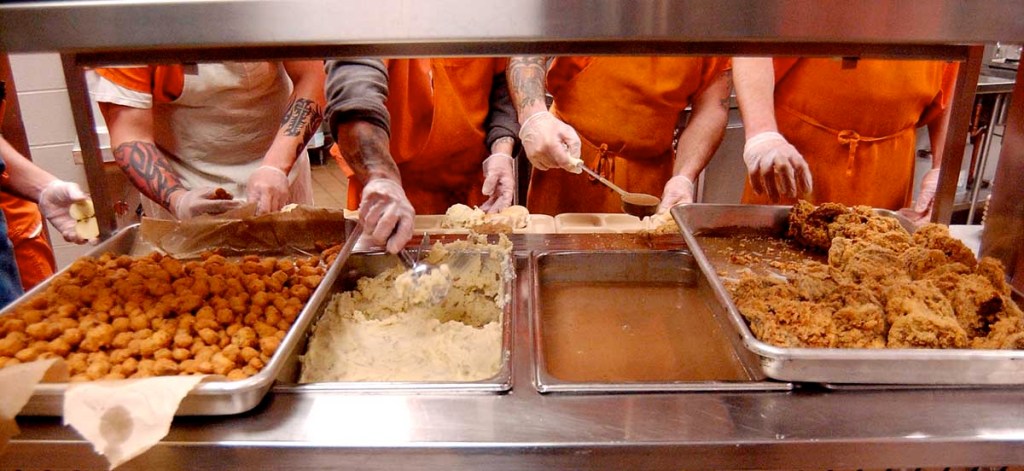Deciding fate of jail food funds
Published 5:30 am Tuesday, October 30, 2018

- Inmates prepare dinner at the Cullman County Detention Center
In addition to the four statewide ballot measures all Alabama voters will decide in next week’s general election, those in Cullman County also will have their chance to spike what’s been a political football, both locally and in other counties, for years: whether to separate the sheriff’s personal finances from funding set aside to feed inmates.
Cullman County Sheriff Matt Gentry, who’s been in favor of making the change ever since campaigning for the office in 2014, said Monday it’s important that voters know what to look for when they receive their ballots at the polling place, and explained why he’s hoping people will vote “yes.”
“Even during my campaign, one of the things we really pushed was changing the sheriff’s food bill,” Gentry said. “Now it’s on the ballot, and it’s the last item that people will see on their ballot when they go to vote. By voting ‘yes,’ you’re voting to end the current law that allows the sheriff to personally receive any inmate food money that’s left over, and to use that money instead for law enforcement.
“It’s an old law; one that says that sheriffs in Alabama are personally responsible for the food, and can personally keep the money that’s left over. Even though we do things the right way in my administration, you never can get away from the stigma that’s grown up around the sheriff and food money — and I’m hopeful that our people will agree to end it by voting ‘yes.’”
Gentry worked alongside Alabama Reps. Corey Harbison (R-Good Hope) and Randall Shedd (R-Fairview) to craft the ballot proposal, which aims to ban the Cullman County Sheriff from personally pocketing the leftover funds that aren’t spent out of each inmate’s $1.75 per-day food budget.
The measure will only be voted on by Cullman County voters, and, if passed, will only apply to Cullman County. The measure also would set the sheriff’s annual salary to match that of the probate judge.
Some Alabama counties that have addressed the inmate food funding issue have done so in case-by-case fashion, while in others, the voters or the courts have spoken.
Former Etowah County Sheriff Todd Entrekin lost his re-election bid in June to GOP primary challenger Jonathon Horton, following a national news story publicizing his legal use of hundreds of thousands of dollars of leftover food funds. And in 2009, a judge ordered former Morgan County Sheriff Greg Bartlett to spend a night in his own detention facility after Bartlett was found to have violated a 2001 court order mandating adequate inmate nourishment.
Gentry said the local bill, if approved by voters, will remove the specter of self-aggrandizement from perennially hovering over the sheriff’s office, while still keeping the sheriff responsible for properly seeing to inmates’ basic needs.
“This ballot measure takes the sheriff’s food fund from being a private account to being a public account; one that will be audited every two years, and will be completely transparent to the people,” he said.
“The sheriff would remain responsible to run the food program properly and fairly, but any funds that are left over at the end of the year can only be used for law enforcement purposes. And it gives the people transparency, which is what they deserve. Our legislature could have changed it, but working with our delegation, we agreed that the people should be the ones to make the decision, which is why it’s going to be on the ballot.”
Polls open on Nov. 6 at 7 a.m. and close at 7 p.m. The four state amendments also appearing on the ballot include proposals to allow the display of the Ten Commandments on public property, to introduce pro-life language into the state Constitution, to reconfigure districting for the University of Alabama Board of Trustees, and to alter the way vacancies are filled in the Alabama Legislature.





